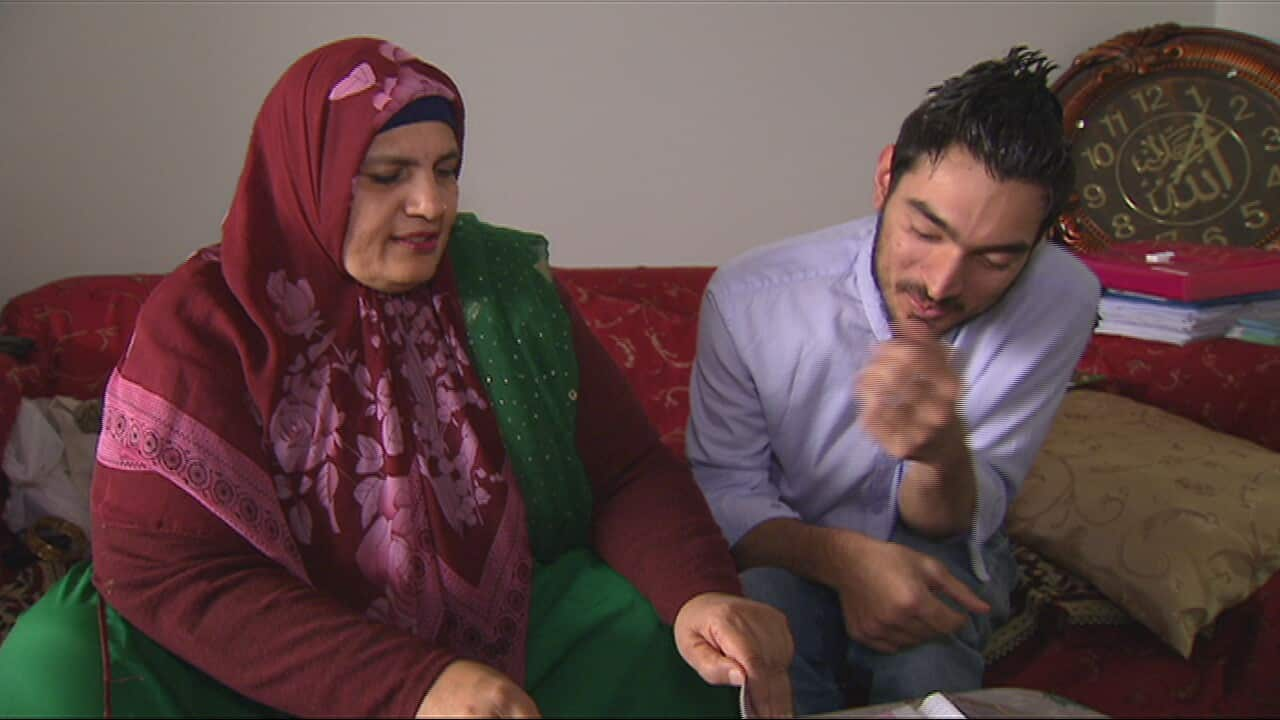An open heart and an open home that's what Mo and Samar, a couple in western Sydney, offer to children in need.
They pair have been foster carers for almost three years and hope their contribution will have long term effects.
Mo says it's about not giving up where others have.
Mo hoped their contribution would have long-term effects.
"We can't change the world, but we can change a child's life. If we can make that little difference in a child's life that makes them say, 'Well, you know what, they didn't give up on me when I was younger, I'm not going to give up on life, I'm going to keep going."
Over the last couple of years, Mo and Samar have fostered a number of children.
From an Arab-Muslim background, they have provided both a temporary home and a cultural connection to children of similar backgrounds -- but, also, to any child needing care.
Samar says their home has been open to all children, regardless of their backgrounds.
"Whatever nationality, we don't really mind. But we did say we just want Muslim children, because we're both practising Muslims. But then when we saw how many kids are coming into care ... And all kids need love, they need somewhere to stay, they need somewhere to be happy, they just need somewhere to be kids."
More than 43,000 children are in out-of-home care in Australia, a 15 per cent jump since 2011.
Simone Czech is the acting executive director of design, innovation, safety and permanency at New South Wales Family and Community Services.
She says there are multiple factors behind the increase but one particular issue.
"The reason for the increase in the population is more about children are staying longer in out-of-home care. So they're actually not returning home. So, in years gone by, children would be restored more often than they are currently, and what that means is that we've needed more foster carers in the system."
Thirty-five per cent of all children in care are Indigenous, but there is no national data about the cultural backgrounds of other children.
Data exists at a state level, though.
For example, 10 per cent in New South Wales and 13 per cent in Victoria are described as coming from non-English speaking backgrounds.
Agencies working in areas with large multicultural populations say the number is higher though, and they are trying to recruit more carers from different backgrounds.
But they say there are challenges.
Tamena Yarak is the out-of-home care manager for , an agency that tries to place foster children with carers from similar cultural backgrounds. Settlement Services International also provides a similar service.
Ms Yarak explains the difficulties: "Culturally, foster care doesn't exist in some cultures. The word is hard to translate. We're having to do an education process with the community to just let them know what foster care's all about. But in some communities, they don't understand what it is."
Ms Yarak says, ideally, matching kids with carers of similar backgrounds has many benefits.
"I can care for a child, but I might not be able to teach them the Jewish way of things or the Buddhist way, because I haven't been raised in that way. So it makes it hard for me to pass on those (things). As much as I want to, it makes it really hard."
Creating Links is a non-government agency in New South Wales.
It specialises in placing children who come from cultural backgrounds outside the mainstream, currently supporting 76 children in out-of-home care.
But Ms Yarak says not all children want to be placed in the community they were born into, due to abuse and trauma experienced within that community.
"There are occasions when kids are very adamant they don't want to go to the same cultural place. So then what we need to do is work very hard at developing a cultural plan to support the carer in maintaining the culture of that child. So it might be that we liaise with somebody from the community, who then does a lot of that cultural understanding with that particular child -- and the carer."
An 18-year-old youth named Sam recently moved out of his foster carer's home after living with her for a number of years.
He says, for him, having a foster parent from the same Lebanese-Muslim background was a positive experience.
"They love you. They treat you like you're part of the family. They're amazing. She's like my real mum. I don't look at her like my foster mum, because she grew me up, she taught me how to be a man, she taught me everything I know today."
As for Mo, the foster parent in western Sydney, he says his belief that the small things that can make a big difference is what motivates him.
"These children are our future, and we all need to understand this. We have to give them a chance. And I keep on saying it. We have to give them a chance, because, if we don't show them that we're more than willing to give them a chance, how are they going to believe that they have a chance in this world?"


